The top 10 most important moments in the history of the Welsh language
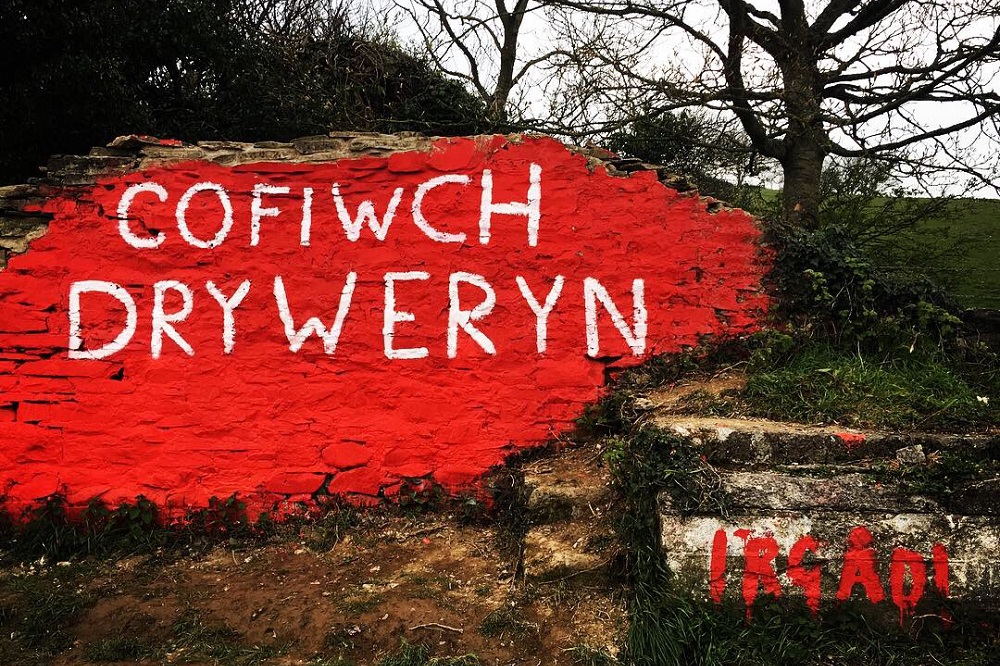
Later on this year, the results of the 2021 census will reveal whether the number of speakers of the Welsh language is growing, staying the same, or falling.
There are estimated to be around 892,200 Welsh speakers today and the language has survived to the present day, sometimes by design, sometimes by accident, but always against the odds.
Here we look at 10 of the most important moments in the history of the Welsh language.
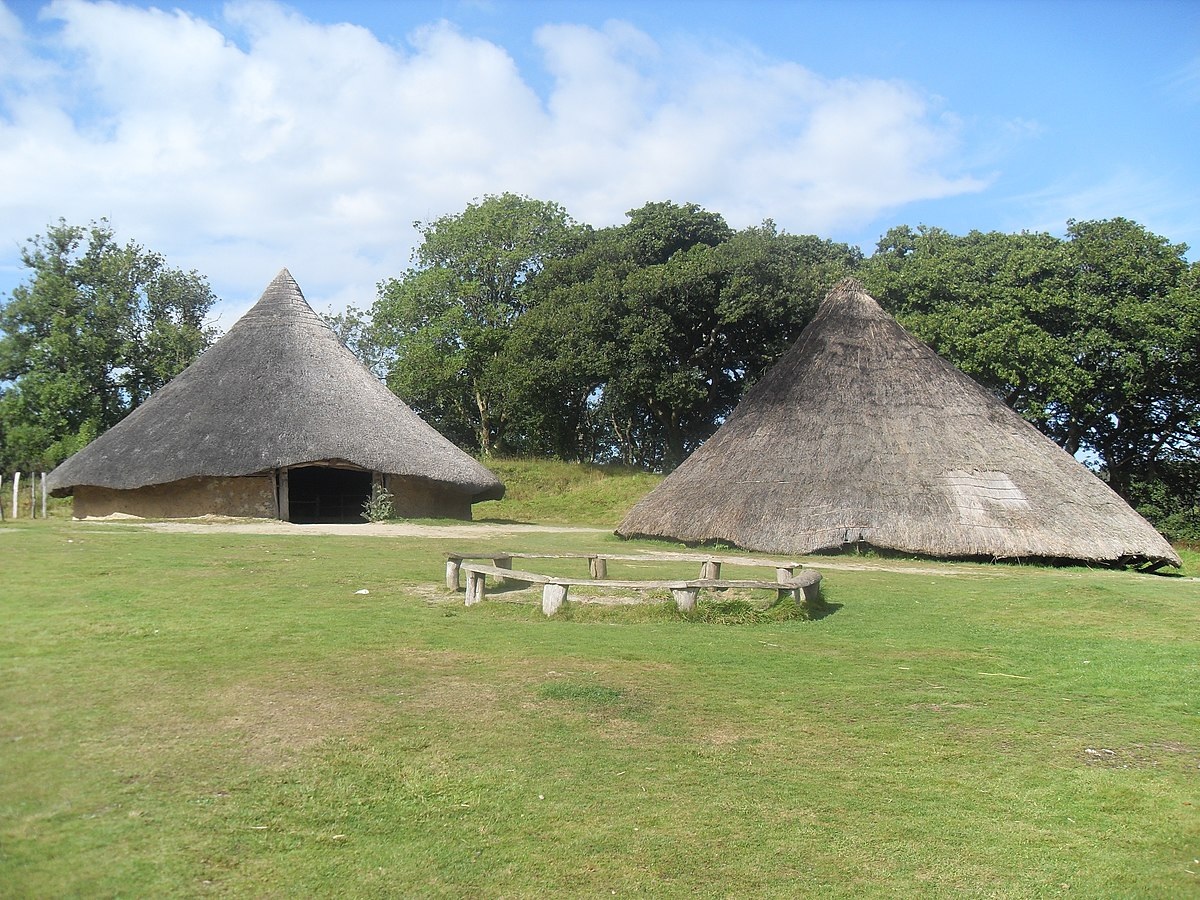
1.) The first Celtic language speaker arrives in Wales
DNA evidence suggests that at some point between 1000 and 850 BC, the first person speaking what eventually became Welsh and other Celtic languages arrived in Wales.
It had previously been argued that the Celtic languages came to Britain in the Iron Age, but the evidence now suggests an earlier appearance.
People living in England and Wales in the late Bronze Age had more ancestry from Early European Farmers than people in early Bronze Age Britain did, suggesting a migration from Europe may have occurred around that time, scientists say.
So at some point during those 250 years, someone crossed into what is present-day Wales, and perhaps declared a proto-‘Shwmae!’ to one of the brown bears that still prowled the countryside during those times.

2.) The Laws in Wales Acts
Despite frequent Anglo-Saxon and Norman incursions, Welsh remained the only language of most people in Wales.
But in 1536 and 1542, things began to change as laws were passed by King Henry VIII that made Wales legally and politically part of England.
Under the new rules, often referred to as the Acts of Union, English became the official language of public administration and was required for any high-ranking post.
The Welsh language was denied official status and had been banned from the spheres of law and administration.
In practice, some of the work had to continue in Welsh – because most couldn’t speak English – but it was a big blow to the status of the Welsh language that has echoed down the centuries to the present day.
The equal status between the Welsh and English languages wasn’t restored in Wales until the 1993 Welsh Language Act.
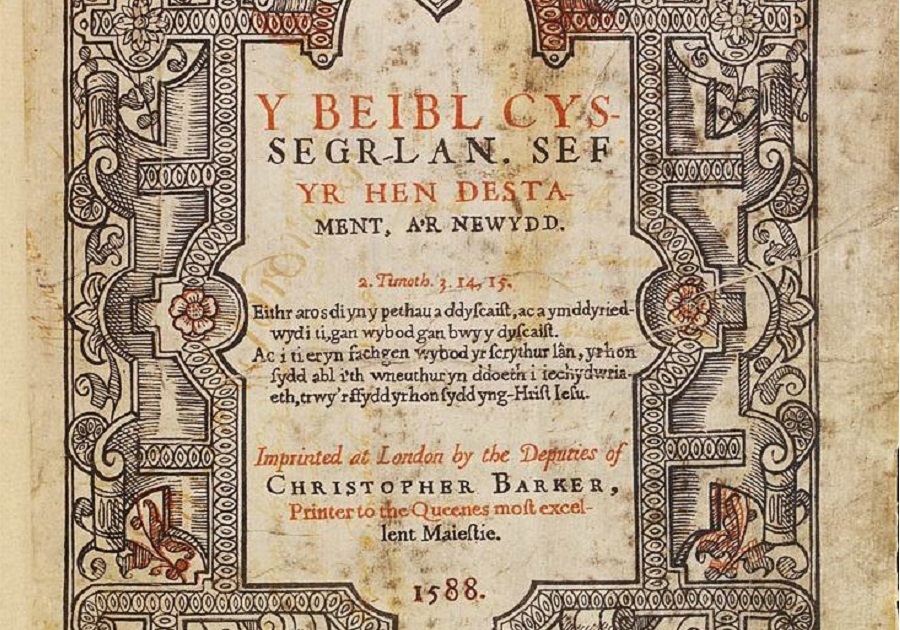
3.) The translation of the Bible into Welsh
If the Tudors were responsible for one of the acts that would do most to damage the status of the Welsh language, they were also responsible for one of the acts that would most revive its fortunes too.
In 1563, Elizabeth I passed the Act for the Translating of the Bible and the Divine Service into Welsh.
This may seem like an out-of-character act of beneficence from the English Crown towards Wales. But the intention in doing so was actually to turn Wales Protestant and therefore bind the nation more tightly to the already-Protestant England.
It worked, and a side-effect of that is that it helped the survival of the Welsh language too by increasing its status as a religious and written language.
The happily Protestant and politically quiet Wales avoided the kind of suppression that the Irish and Scottish Gaelic languages had to endure as they were more closely associated with Catholicism.
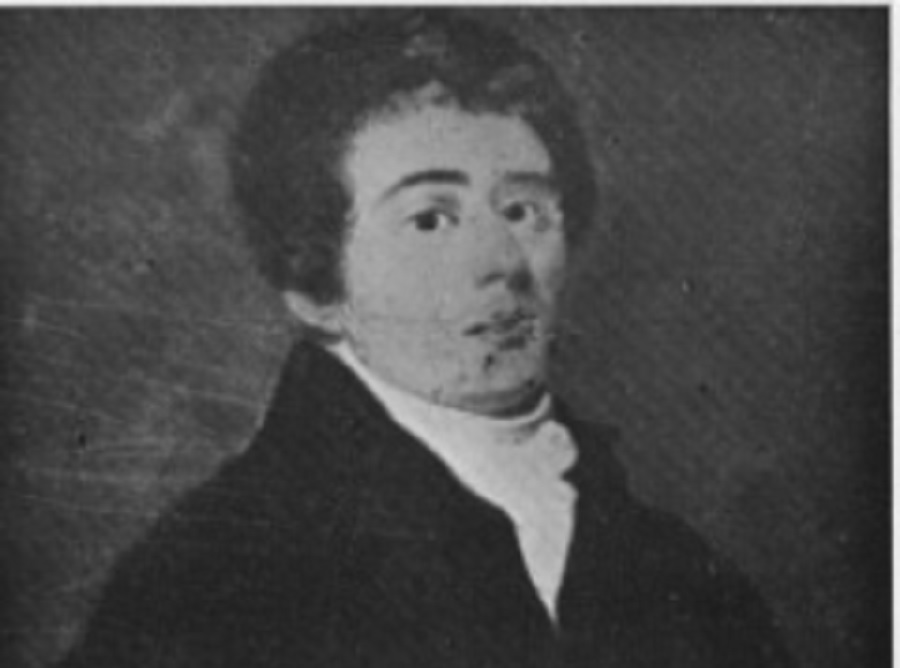
4.) Griffith Jones Llanddowror’s circulating schools
In the early 18th century the preacher Griffith Jones set up circulating schools – i.e. schools that moved about – across Wales.
These were in Welsh, and by 1761 he had taught almost 200,000 people to read, making Wales one of the most literate nations on earth.
The intention however wasn’t to save the Welsh language but rather to save people’s souls. He was motivated by seeing “children and people dying without knowing Christ” after his area was hit by typhus between 1727 and 1731.
He taught children and adults to read the Bible in Welsh just because they couldn’t speak English. In fact, he made it clear that he didn’t care much about the Welsh language at all:
“I am not at present concerned what becomes of the language, abstractedly considered; nor design to say anything merely to aggrandize or advance its repute,” he wrote.
So for the second time, an effort to promote religion had, largely as an accidental side-effect, helped to ensure the continuation of the Welsh language.
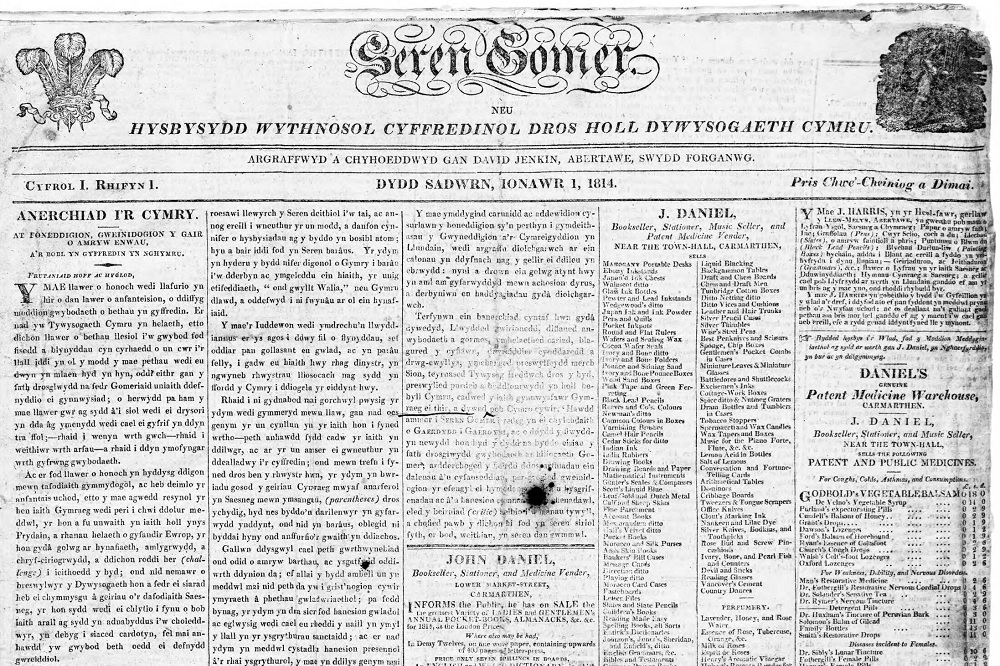
5.) Seren Gomer
Seren Gomer which launched in 1814 was Wales’ first national and Welsh language newspaper.
The first attempt at the newspaper didn’t last long – only a year and a half – but it set the scene for what would become the ‘golden age’ of Welsh language publishing later in the century.
But the newspaper was also unique in that it was perhaps the first call to arms to save the Welsh language.
The newspaper itself had been set up because its editor, Joseph Harris, had been alarmed to see three English newspapers set up in Swansea where he lived.
“The condition of the Welsh language may have caused you worry, that this that was once the language of all of Britain, and large parts of Europe, and was among the strongest of the world’s languages,” he wrote in his call to arms.
In a later issue he praised the “many heartbroken Welshmen who rushed to stop what indifference and negligence had done in our language”.
In many ways Seren Gomer, as a Welsh language publication that treated Wales as a nation in its own right and not just a county of England, set the scene for the fight for the Welsh language and Welsh nationhood that survives to the present day.

6.) The railways cross Wales
In the 19th century railways were built across Wales, to take people across to Ireland, to take tourists to Welsh coastal resorts like Llandudno and Aberystwyth, and to carry industrial goods like coal and slate.
But they also brought English daily newspapers and books into Wales. Because these were also for an English audience, they could be mass produced and were therefore even cheaper to buy than Welsh language books, newspapers and magazines.
John Owen Jones wrote in 1891 that a Welshman could now “buy the works of every poet in England for the price of one Dafydd ap Gwilym”.
The railways were also run by companies that hired English-speaking staff so they could operate across the entire lines that run over the border into England.
The Welsh generally welcomed this process of industrialisation. But it had a big impact on the Welsh language and a sense of Welsh nationhood, because people in Wales turned to the English language press, and the English language was thought to be the language of industrial progress.

7.) Eileen and Trefor Beasley’s campaign for a rate bill in Welsh
Before the 1950s the Welsh language wasn’t considered important enough for official use – perhaps a continuing hangover from its reduced status as part of the Acts of Union.
When Eileen and Trefor Beasley received an English language rate bill in 1952, however, they decided to take a political stand. They wouldn’t pay it until they received one in Welsh instead.
They were taken to court 16 times, and their furniture – which was worth more than the bill they refused to pay – were taken away by bailiffs. Trefor Beasley also spent a week in prison.
In 1960 they won the battle and the council bill was printed in Welsh and English.
Their protest inspired others and led to the creation of Cymdeithas yr Iaith Gymraeg, which continues to this day.
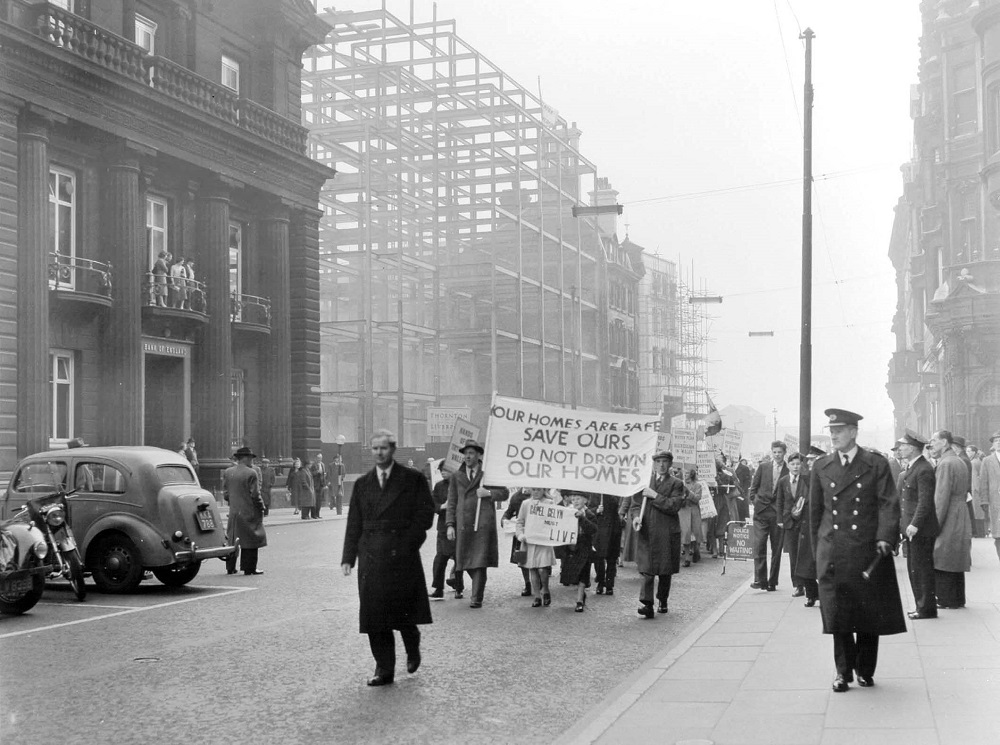
8.) Cofiwch Dryweryn
In 1965 the Welsh-speaking village of Capel Celyn in the Tryweryn Valley near Bala was flooded.
The aim was to supply drinking water for England and the people of the village fought for eight years against the plans.
Although the campaign did not succeed it radicalised a generation of Welsh speakers who realised that only a measure of autonomy could protect their own communities.
The slogan ‘Cofiwch Dryweryn’ remains painted on a wall near Llanrhystud and despite nearly 60 years having gone past it remains as a constant battle cry for the Welsh language and independence movements.
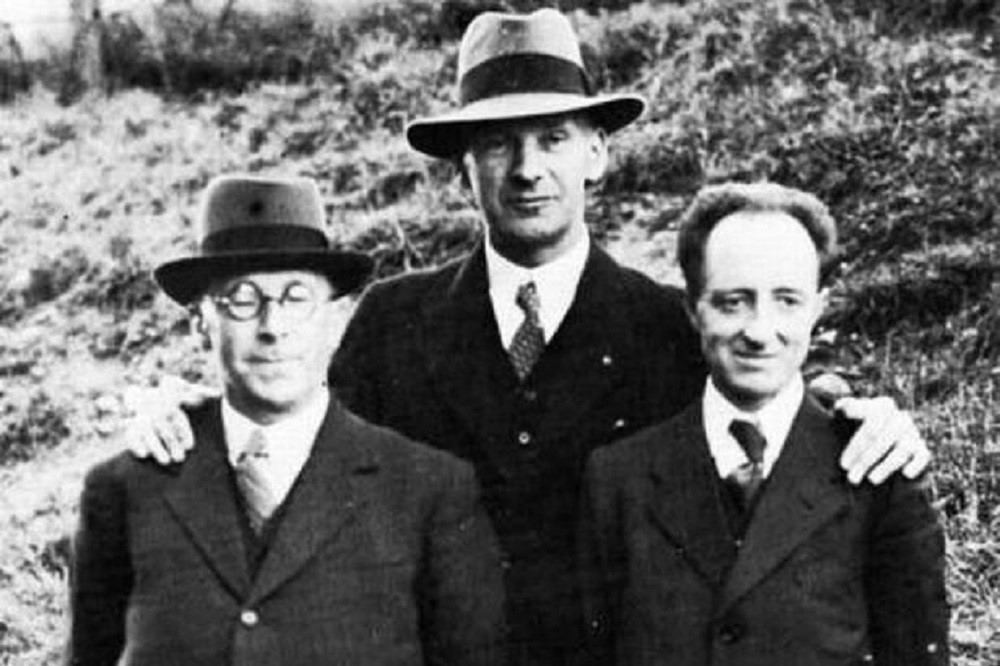
9.) Tynged yr Iaith
In 1962 Saunders Lewis delivered one of the most significant lectures in the Welsh language, Tynged yr Iaith.
The lecture, titled Fate of the Language in English, was a seminal moment in the founding of Cymdeithas yr Iaith and the Welsh language rights movement.
The lecture referred to the campaign by Eileen and Trefor Beasley and called for a period of direct-action agitation to enhance the status of the Welsh language.
The most famous line in the radio lecture was: “Only through the methods of revolution can we succeed.”
According to Historian John Davies, the lecture was “the catalyst” for much of the activity to safeguard the Welsh language that came after it.

10.) The launch of S4C
In the late 1970s and early 1980s, many people were calling for a Welsh language television channel.
The UK Government first promised to set one up but then changed their mind.
Gwynfor Evans, who was president of Plaid Cymru at the time, said that he would go on hunger strike until he died unless one was set up.
Margaret Thatcher’s government did an u-turn and the Welsh language TV channel, S4C, was eventually launched in 1982.
It continues to broadcast to this day, including an expansion into digital platforms with streaming on iPlayer and on YouTube, and on social media.
Support our Nation today
For the price of a cup of coffee a month you can help us create an independent, not-for-profit, national news service for the people of Wales, by the people of Wales.






I’d put the translation of the Bible in the 16th century by Bishop William Morgan, Ty Mawr Wybrnant, Penmachno, was the No 1 most important. The main, and for many the only, work of literature people then and for centuries to come in Wales read was the Holy Bible, and was the basis of much of life. Had it not been translated it is safe to say our language wouldn’t exist today. Diolch William.
The site you endorse appears to be corrupted as all links within it goes to the same page. Which countries $ are you referring to?
We already had the Bible, the Celtic book of cells was the earliest gospel.. translations of the Bible in Latin were not uintiellgible to speakers of Brittonic.
You make it sound like Wales did not become Christian until the 16thC.
Great article!! Da Iawn Nation Cymru!!
Could it be argues thst the formstion of Radio Cymru was more important than S4C?
A genuine Question, as I’m not sure. I think, to this day, more ppeople listen to it than S4C(?).
I’m not sure re numbers wise,but I listen/ watch both. They’re not oompetitors but 2 sides of a coin. Is Radio 4 more important than BBC1 or 2?
I’d just like to point out that the census only takes into account the number of Welsh speakers in Wales, if – like I have – you’ve moved away to Scotland or elsewhere, your ability to speak Welsh isn’t queried.
Native Welsh people speak brittonic not Celtic cymreag, but weve had many words stolen by English language and use cymreag to help differentiate ourselves from Saxons, as well as Celts). Gaels. Who are not native.